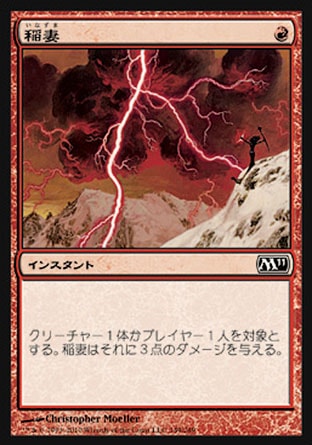In Japanese version of Magic: the Gathering cards, there is a common idiom
"[target description] を対象とする。[subject] それに [action]."
For example, in this card:
the Japanese text says "クリーチャー1体かプレイヤー1人を対象とする。稲妻はそれに3点のダメージを与える。"
The english text says "Lightning Bolt deals 3 damage to target creature or player."
- What does the と in the sentence mean? Wouldn't 対象する work alone?
- Is there a simpler, less wordy, way to say the same thing, similar to the way that in English, we can use "target" as an adjective?

